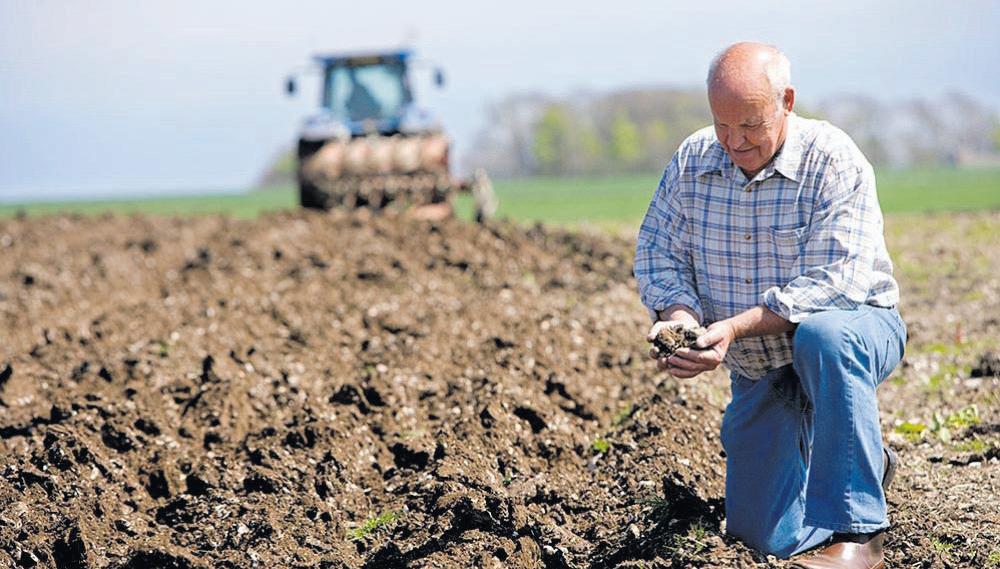
3 minute read
New grants to help build resilient regional communities
Applications are now open for grants of up to $20,000 or $50,000 for events and initiatives to strengthen communities and capability for drought preparedness.
The grants are one of 5 program elements that are part of the Future
Drought Fund’s Helping Regional Communities
Prepare for Drought Initiative which aims to build strong networks and local leadership in agriculture-dependent communities.
Department of Agriculture, Fisheries and Forestry Deputy Secretary, Rosemary Deininger, said that the new grants will beneft communities across Australia and help support those facing impending drought.
“The Australian Government committed over $2.5 million in funding to support community events, training initiatives, community infrastructure, development and learning initiatives that assist local people to prepare for future droughts effectively,” Ms Deininger said.
“This round of grants sees $1.38 million in grants of up to $50,000 for eligible projects in the NSW Far West, the NT’s Tablelands and Arid Lands, and WA’s Great Southern local government areas, and $1.20 million in grants of up to $20,000 for eligible projects in agriculture-dependent regions nationwide.
“Australia’s regional communities know better than anyone that droughts will become more frequent, severe and longer lasting, and we want to ensure that they are supported and ready for when they do.
“These grants offer regional communities dependent on agriculture production with opportunities for social connection, engagement and wellbeing through events and initiatives, while giving the added bonus of building their capacity to withstand drought.”
The frst round of grants is now open and closes on 14 November with successful projects to be announced in early March 2024. The second round will open for applications in February 2024 and close in late March. Unsuccessful applicants from Round 1 may reapply in Round 2.
“I encourage any community-based organisations across remote, rural and regional Australia to apply for the grants,” Ms Deininger said.
For more information on the small network grants, including region and project eligibility criteria and how to apply, visit the Foundation for Rural Regional Renewal website. https:// frrr.org.au/funding/ disaster-resilience-andclimate-solutions/smallnetworks-grants/

Producers oppose Levy over poor policy: NFF biosecurity protection levy submission

The National Farmers’ Federation (NFF) has told the Federal Government it opposes a new biosecurity levy on farmers, saying the proposed levy may erode farmer confdence in the entire levy system.
In the NFF’s submission to the Introduction of the Biosecurity Protection Levy: Consultation Paper, Chief Executive Tony Mahar said while the peak farming body supports ongoing efforts to ensure Australia’s biosecurity system is well resourced, it does not support this policy.
“This isn’t about farmers not wanting to contribute to the biosecurity system - they already contribute signifcant amounts” Mr Mahar said.

“This is about an illthought-out policy with a raft of potential risks.”
Key reasons the NFF is opposed include:
• The policy’s inconsistency with established levies and collection principles such as equability, transparency and accountability;
• The likelihood of a range of negative unintended consequences for agricultural and biosecurity systems, in particular our research and development network;

• The lack of transparency about how the funds will deliver dedicated, additional and tangible biosecurity outcomes.
Mr Mahar said the industry was “extremely concerned” this new levy would jeopardise producer confdence in the existing levies system as it did not align with underlying principles, such as proper establishment processes, industry support, equitability and accountability.
“This new levy is going to erode producer confdence in the entire levies system as it’s inconsistent with the principles that underpin other levies producers pay. The proposal is not equitable between and within different commodities, and explicitly states that producers will have no say in how the money they contribute will be used.
“We remain committed to working with Government to improve resourcing the biosecurity system, but we would not be doing our job on behalf of producers if we didn’t call out this policy.
“The Government must - at the very least - pause its rushed implementation timeline, so adequate time is given to understand the impacts a policy of this size and complexity will have on Australia’s 85,000 producers.”
The NFF has also used its submission to again raise industry concerns about the Container Levy policy.
“Australian agriculture has advocated for many years the need for a broad-based levy on inbound containers to help fund the biosecurity system. This call has been supported by environmental and invasive species organisations. Review after review has recommended it.
“The Government has advised international trade implications represent a potential barrier to adopting the Container Levy. As a trade-exposed sector, it is not in our interests to run afoul of trading requirements or obligations.
“However, the sector has simply asked these considerations be made public, but disappointingly this has not occurred. This must be resolved immediately.”











